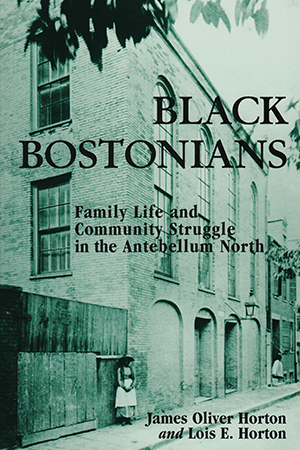
- 2000/198 pages
- Distributed for Holmes & Meier Publishers
Black Bostonians:
Family Life and Community Struggle in the Antebellum North, Revised Edition
Hardcover: $55.00
ISBN: 978-0-8419-1379-0
Paperback: $25.00
ISBN: 978-0-8419-1380-6
Updated and expanded in this revised edition to reflect twenty years of new research, when published in 1979 Black Bostonians was the first comprehensive social history of an antebellum northern black community.
The Hortons challenged the then widely held view that African Americans in the antebellum urban north were all trapped in "a culture of poverty." Exploring life in black Boston from the eighteenth century to the eve of the Civil War, they combined quantitative and traditional historical methods to reveal the rich fabric of a thriving society, where people from all walks of life organized for mutual aid, survival, and social action, and which was a center of the antislavery movement.
The Hortons challenged the then widely held view that African Americans in the antebellum urban north were all trapped in "a culture of poverty." Exploring life in black Boston from the eighteenth century to the eve of the Civil War, they combined quantitative and traditional historical methods to reveal the rich fabric of a thriving society, where people from all walks of life organized for mutual aid, survival, and social action, and which was a center of the antislavery movement.







